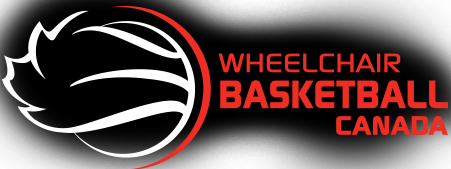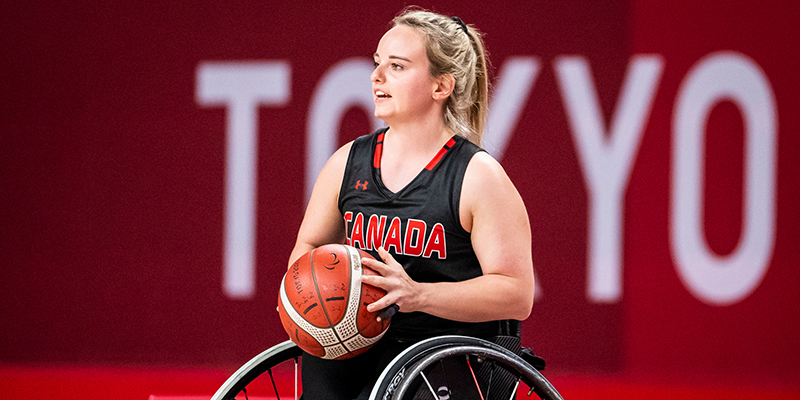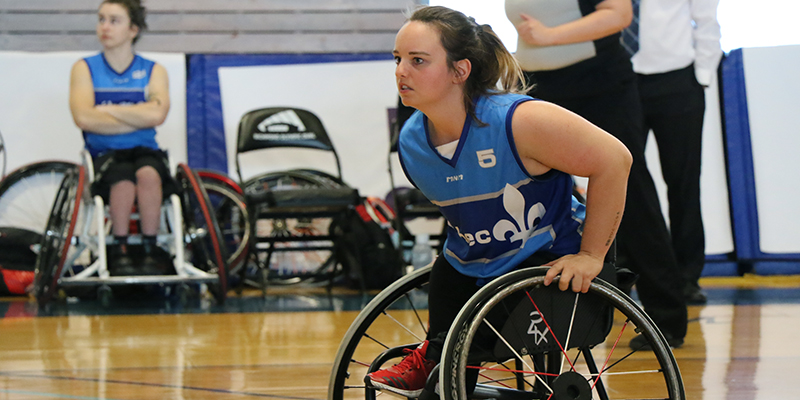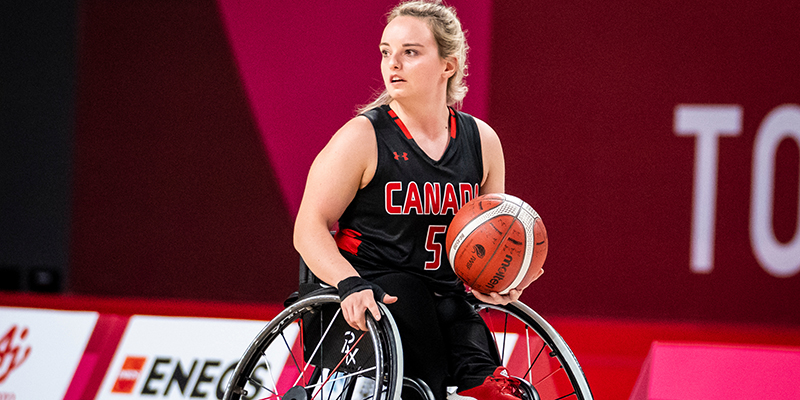Élodie chronicles her journey from growing up in Saint-Germain-de-Grantham to discovering Wheelchair Basketball and attending school at UT-Arlington.
I grew up in Saint-Germain-de-Grantham in Quebec, which is a small agricultural town of about 4,000 people. It was my two parents, me and my twin sister, Jessica, and our dog.
Growing up with a twin sister was pretty good. Honestly, she’s always been there for me. She is the one I am looking to when I have a problem. Right now, we probably have the best relationship we’ve ever had.
Once we passed that step of wanting to beat each other, experiencing what the other experienced, it’s been really cool. We’ve built the best relationship. To be honest, some twins don’t have the best relationship, I do. She’s probably my best friend.
I think she always pushed me. If she was running, I wanted to run faster without her knowing. She was the one I wanted to beat. It didn’t always happen, but she was always my motivation to be better.
We were very active; we liked being outside gardening with my mom or jumping on the trampoline and swimming because we had a pool on our property. We had ATVs and Skidoos, so we rode those often.
I’m born with a disability – it’s basically a bone malformation. My legs didn’t grow properly. I don’t have a knee on my left leg, and on my right leg, I have a knee, but it is really up high. I can walk, but I have a day chair for long walks just because it is easier.
My parents gave me all the freedom I could ask for. Even though I was different, my parents always said there were no limits. They got me a Wheelchair Basketball chair – they never stopped me because I needed special equipment to do something.
Discovering Wheelchair Basketball
I discovered Wheelchair Basketball through a classmate.
Somebody I went to school with just asked me whether I knew about Wheelchair Basketball. When I said no, she invited me to one of her practices, and I fell in love with it then. I don’t remember if Jess was there, but I know my mom and dad were there. I just sat in the chair, and I loved it. That was it. Pretty simple.
I didn’t realize the sport would take me all over the world. I started in 2010, so young and inexperienced. Once I grew up and understood a little bit more about what could be achieved, it’s been really interesting.
To be here in Texas right now, in university, it’s been a really good opportunity, especially to have my education.
I’m studying operations and management in the school of business. It’s going well. I’m supposed to graduate in May 2024, so I still have a couple of years ahead of me, but I enjoy being here. I think there are a lot of resources on campus that allow me to be successful, and I’m really enjoying my time. There are a lot of good networking opportunities as well – I’m meeting new people every day.
Now that we’re back on campus, it’s a little bit more interesting where the teacher is actually in front of you, so it is not all computer-based learning. It makes it more interesting and makes me more motivated.
I have spoken with several people that have been in my program. One of them told me about supply chain management – there are so many things that you can achieve. I would love to work for an international company.
I think one of my goals would be to find a job that allows me to travel and meet new people. I think this career path could give me something similar to what I am getting from Wheelchair Basketball – that rush.
First Paralympic Experience
Tokyo was definitely a huge experience. Even though the Games got postponed and there were no spectators, the emotion that goes through you when you’re in it the middle of the competition is actually crazy.
Everyone on the National Team signed up for that 4-5 year cycle with the goal to represent Canada at this event. It’s just so crazy how much emotion there can be on game day, and then the next day it is completely different. I never really experienced that before.
It’s funny that the motto of the games was “united by emotion” because you’ve got to be united with your emotion.
People were talking about it like, ‘Oh Didi, you’ll see it’s so hard some times and so easy other times.’ I was like, ‘Wow, they really seem up and down.’ I thought to myself that it probably wouldn’t be that bad, but it is actually crazy when you’re in it.
Sometimes you don’t understand what is going on right away. You have to process things too.
For Wheelchair Basketball, we have 40 minutes to play. For some other athletes, it’s only a run maybe, it’s only a few seconds, and then you’re done. I consider myself lucky to be able to fight alongside my teammates for 40 minutes on the Paralympic court. It was an overall amazing experience.
What advice would you give someone who is considering Wheelchair Basketball?
In Wheelchair Basketball, the skill either comes naturally, or it doesn’t, and you have to work your butt off. I’m the second option. I had to work my butt off. I’m the person who is going to put the time in to be good at it.
It takes commitment and wanting to be good at it. Sometimes it requires checking your ego at the door. Even though I had those obstacles, I was never discouraged. You need to want it. You need to want to be good. You must want to work with a team, to work with people, and to be vulnerable.
My advice would be: how good do you want to be and how badly do you want it? And don’t be scared. Sometimes it can be scary. It can be scary to go into that kind of community, and the national team is big, you know?
Don’t be scared. We’ve all gone through the process. We were all newbies before.





